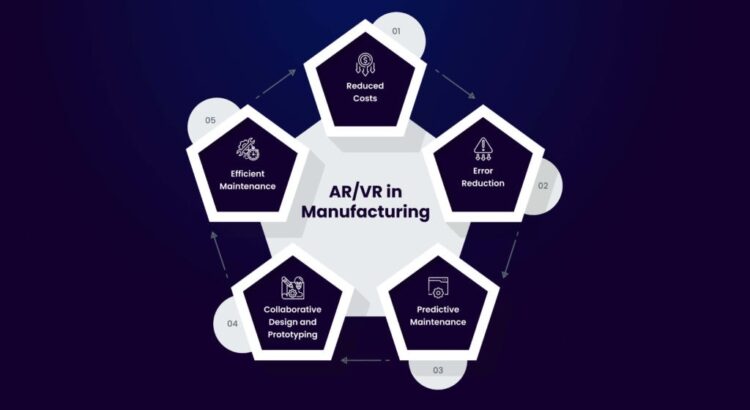AI vs Human Intelligence: What’s the Real Difference?
We live in a world where machines can learn, adapt, and even respond in ways that mimic human thought. Artificial Intelligence (AI) is no longer science fiction — it’s embedded in our phones, homes, businesses, and decisions. But amid all the buzz, one question keeps coming back: How does AI really compare to human intelligence?
Let’s explore the core differences between AI and the human brain — and why both are essential in the evolving digital age.
1. Definition: Brain vs. Algorithm
Human intelligence refers to the cognitive abilities of humans — including learning from experience, understanding abstract concepts, emotional reasoning, problem-solving, and creativity. It’s deeply tied to consciousness, morality, and emotions.
Artificial Intelligence, on the other hand, is the simulation of human intelligence by machines. It includes capabilities like pattern recognition, language processing, decision-making, and predictive analytics — all powered by data and algorithms, not emotions or consciousness.
In simple terms, humans think; AI computes.
2. Learning and Experience
Humans learn organically through experiences, senses, and interactions. A child learns to walk not just by instruction but by falling, observing, and trying again. We learn from emotion, intuition, and error.
AI learns through data. It’s fed millions of examples, and through models like machine learning and deep learning, it identifies patterns. But here’s the catch: AI only knows what it’s trained on. A self-driving car may recognize a pedestrian, but it doesn’t feel fear if someone jumps into traffic.
Humans generalize from minimal examples. AI needs thousands.
3. Emotion and Empathy
This is one of the biggest gaps.
Humans can understand context, express empathy, feel joy, pain, and relate to others emotionally. Our decisions are influenced by ethics, empathy, or even a “gut feeling.”
AI doesn’t possess true emotions. It may simulate empathy (like a chatbot responding, “I’m sorry to hear that”), but it doesn’t feel sorrow or concern. Its “understanding” is based on rules and programmed patterns.
This makes AI useful for data-driven tasks — but limited when emotional intelligence or moral judgment is needed.
4. Creativity and Innovation
Human intelligence can create art, compose music, write poetry, and invent solutions from seemingly nothing. Creativity isn’t always logical — it often breaks the rules.
AI, on the other hand, creates based on patterns and training data. It can generate music, paintings, or write articles (like this one), but it works within predefined limits. It’s not truly inventing; it’s remixing and replicating styles.
AI may mimic Van Gogh, but only a human could invent impressionism.
5. Adaptability and Intuition
Humans are remarkably adaptable. We can switch between tasks, solve problems in new ways, and make decisions with little information. Our brains can handle ambiguity.
AI struggles with unexpected inputs. While advancements in general AI aim to fix this, most AI systems today are narrow — excellent at one task but poor at adapting.
For example, an AI trained to play chess can’t drive a car. But a human can switch from driving to cooking dinner to solving a math problem — all in the same hour.
6. Speed and Accuracy
This is where AI shines.
Machines process vast amounts of data in seconds. AI can analyze millions of documents, detect trends, and generate insights faster than any human ever could. It doesn’t get tired, bored, or distracted.
In sectors like finance, healthcare, or logistics, AI drastically improves efficiency and accuracy. While a doctor might miss a rare disease, an AI trained on thousands of case studies might catch it in an instant.
Here, human intelligence complements AI — offering context, empathy, and final judgment.
7. Ethics and Decision-Making
Humans apply morality and social norms in decision-making. We debate, consider consequences, and sometimes act selflessly.
AI decisions depend on how it’s programmed. Bias in data can lead to biased outcomes — an issue seen in facial recognition or hiring algorithms. AI lacks a conscience.
This raises a vital point: AI shouldn’t replace human judgment in areas involving ethics, rights, or justice — it should assist, not decide.
So, Who Wins?
It’s not about AI vs. humans. It’s about AI with humans.
AI enhances productivity, helps us make better decisions, and handles repetitive or data-heavy tasks. But the spark of innovation, empathy, moral reasoning, and adaptability — that still belongs to humans.
Rather than fearing AI, we must focus on collaboration. When we combine human intelligence with artificial intelligence, we unlock the true potential of progress.
Final Thoughts from Razorse Software
At Razorse Software, we believe the future lies in building digital tools that empower humans, not replace them. Our AI-powered solutions are designed to boost business intelligence, automate repetitive tasks, and support strategic decision-making — all while keeping the human element at the centre.
Whether you’re exploring AI for your enterprise or curious about its role in digital transformation, we’re here to guide you every step of the way.
Let’s innovate — together.
#ArtificialIntelligence #HumanIntelligence #AIvsHuman #RazorseSoftware #DigitalTransformation #Innovation #AIWithHumans #FutureOfWork #TechForGood #MachineLearning





